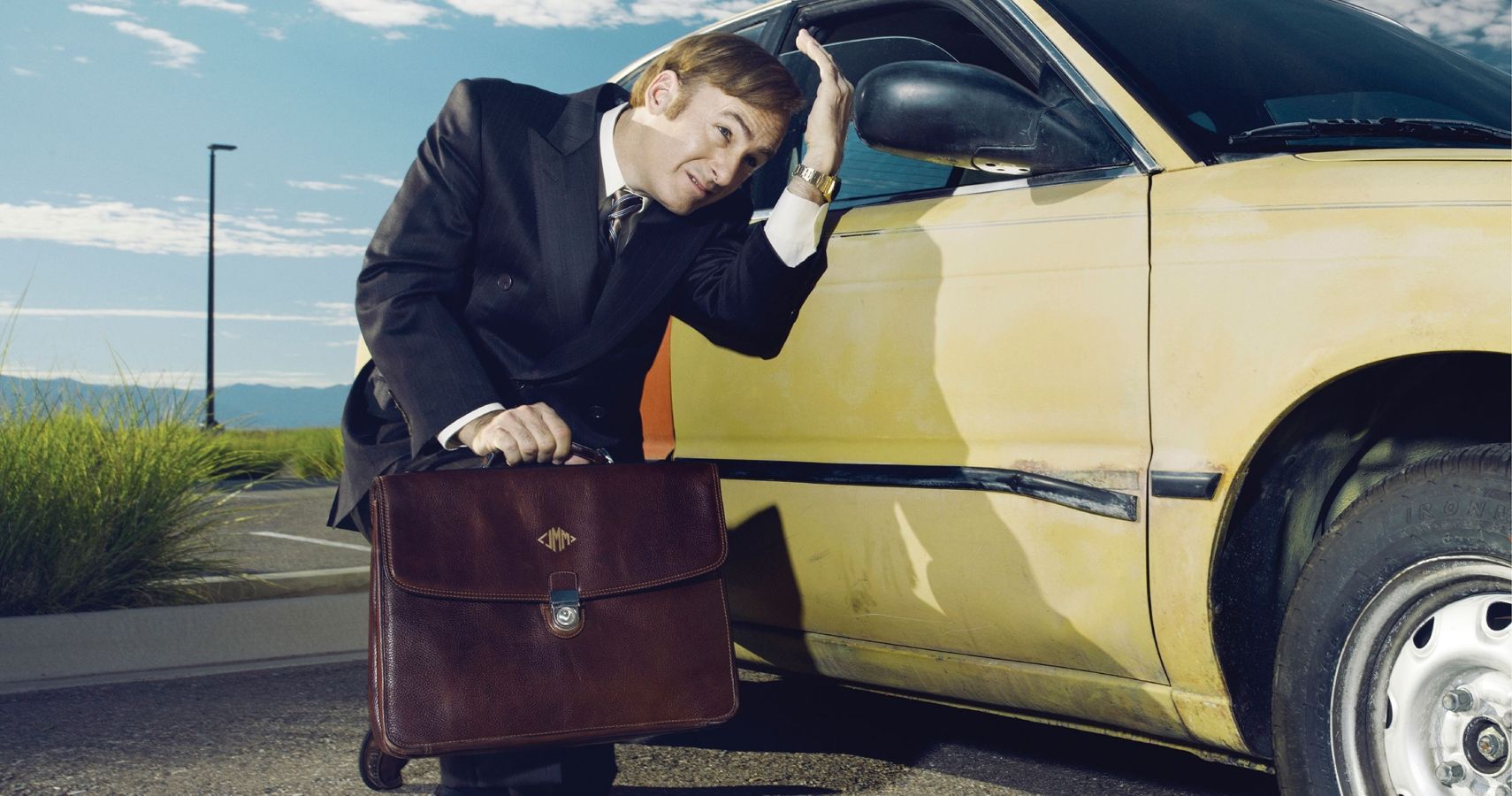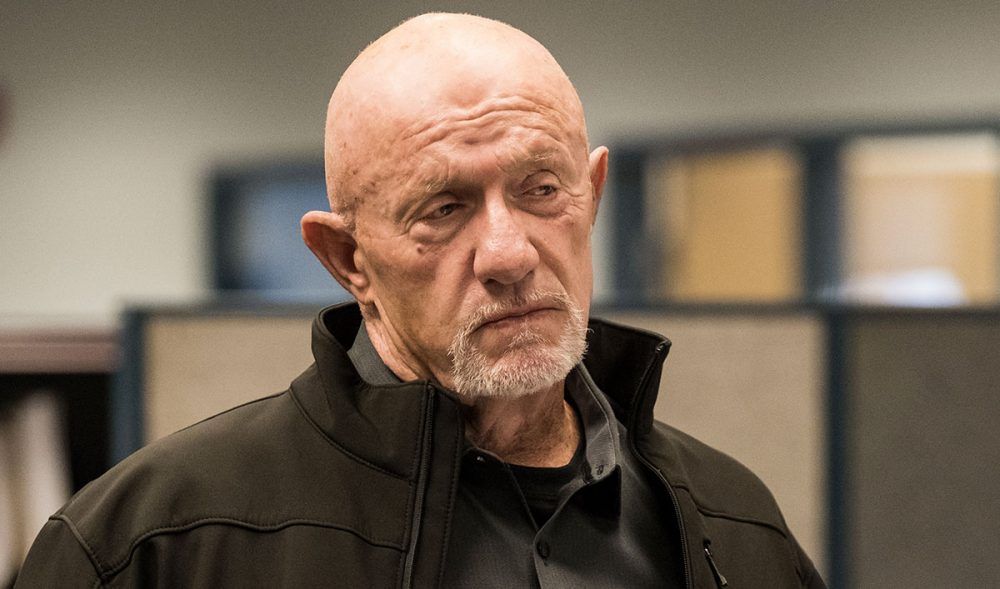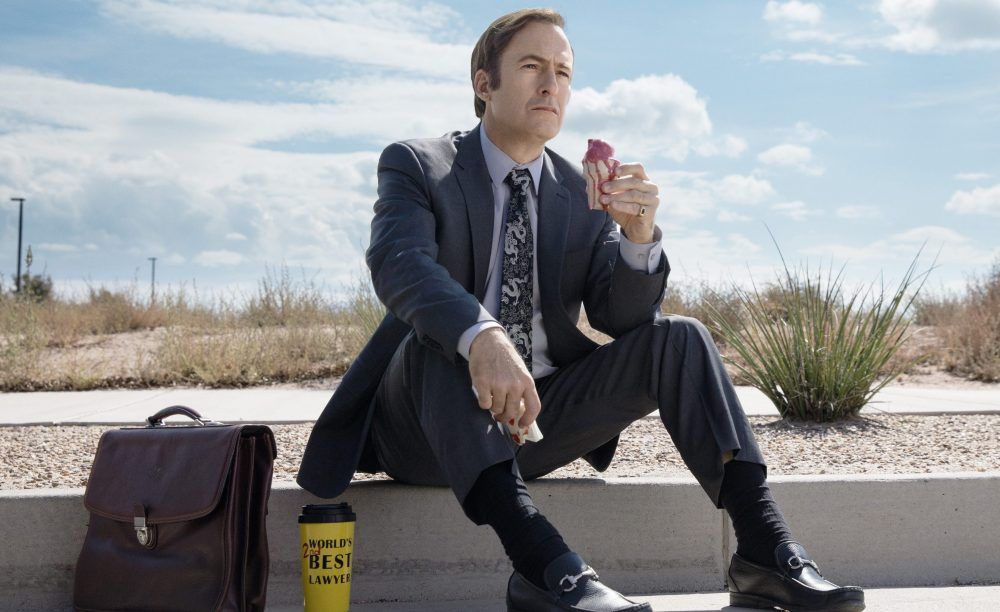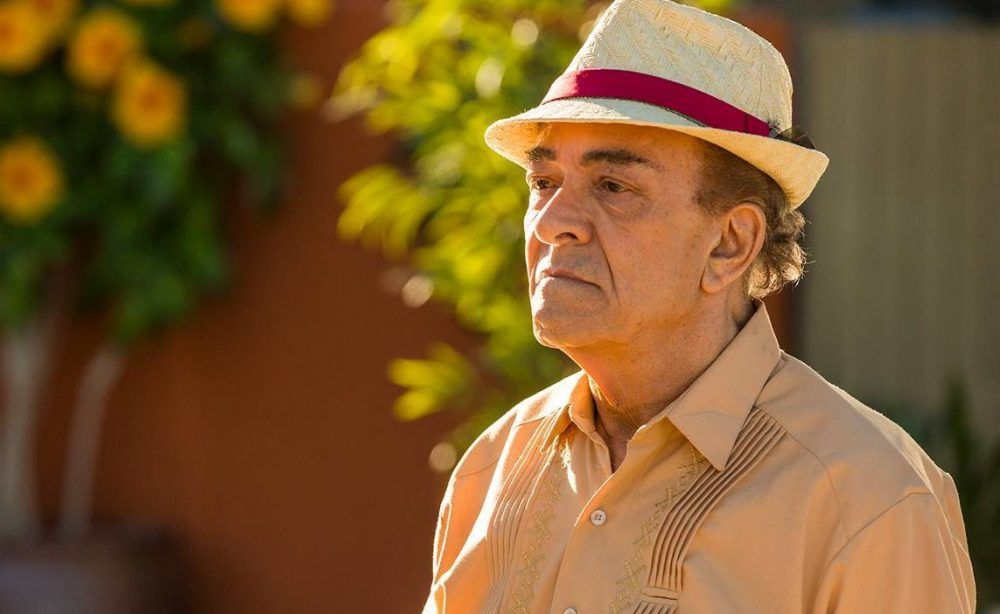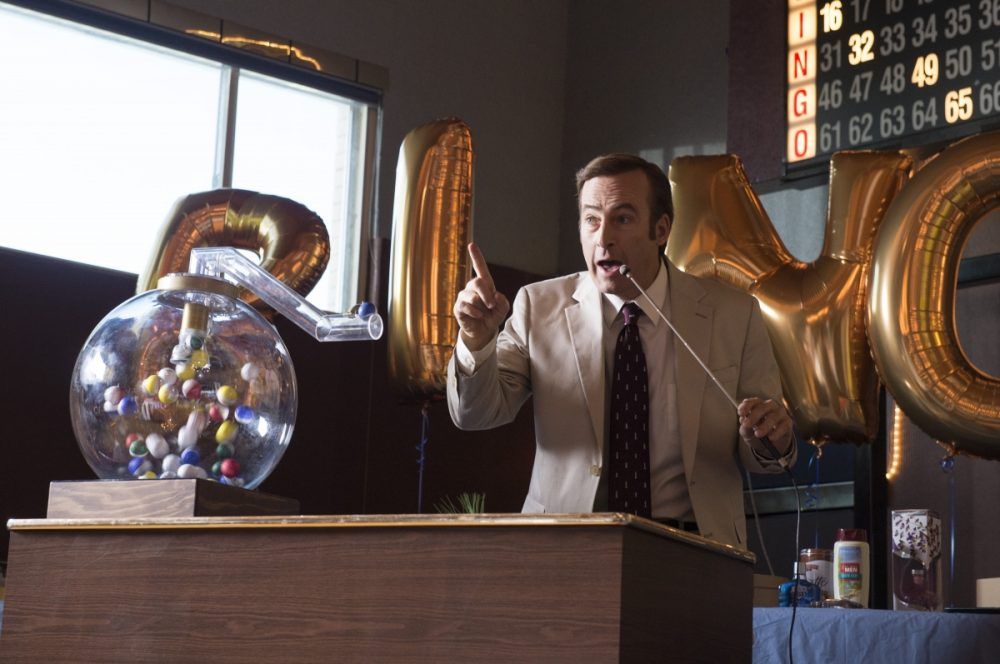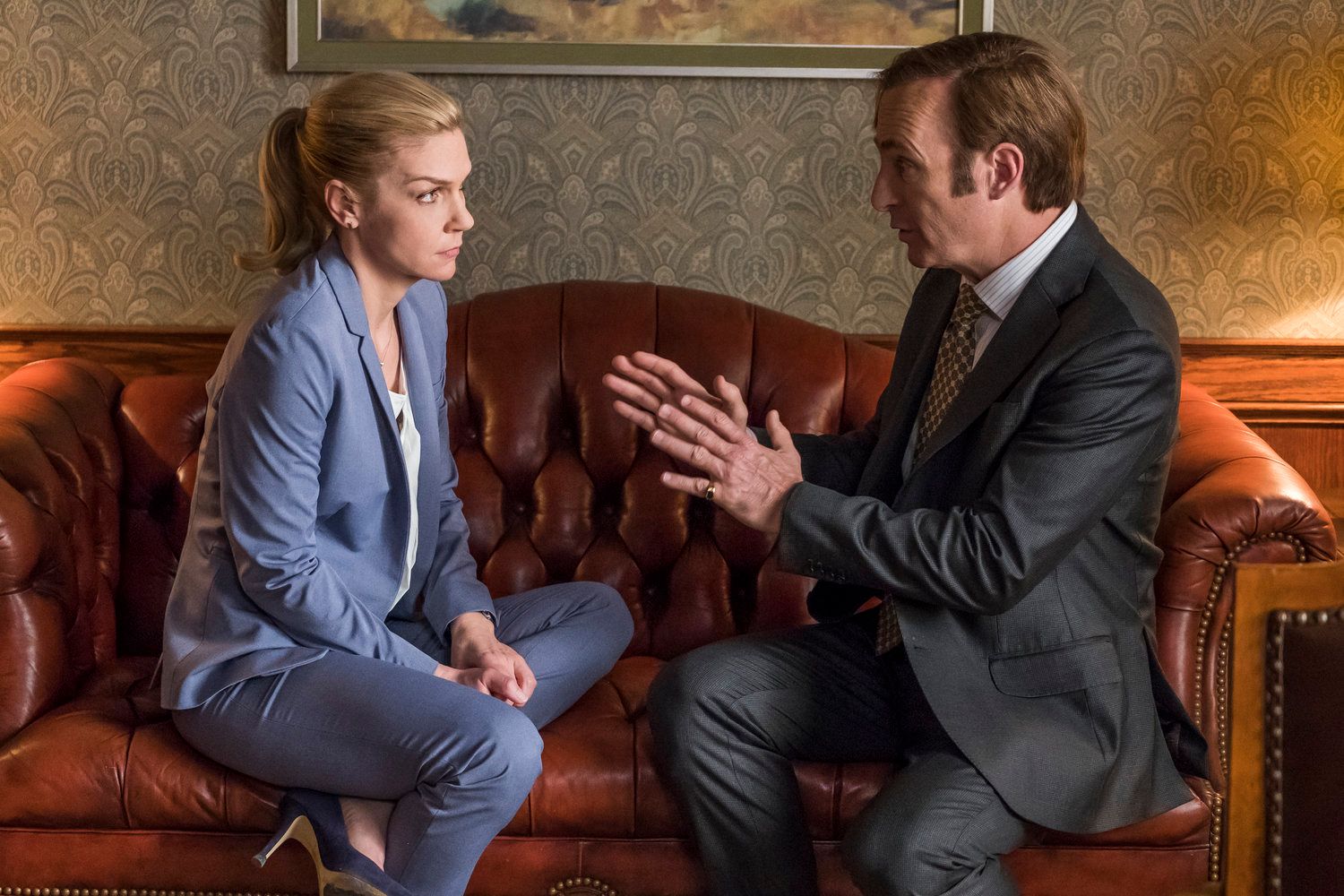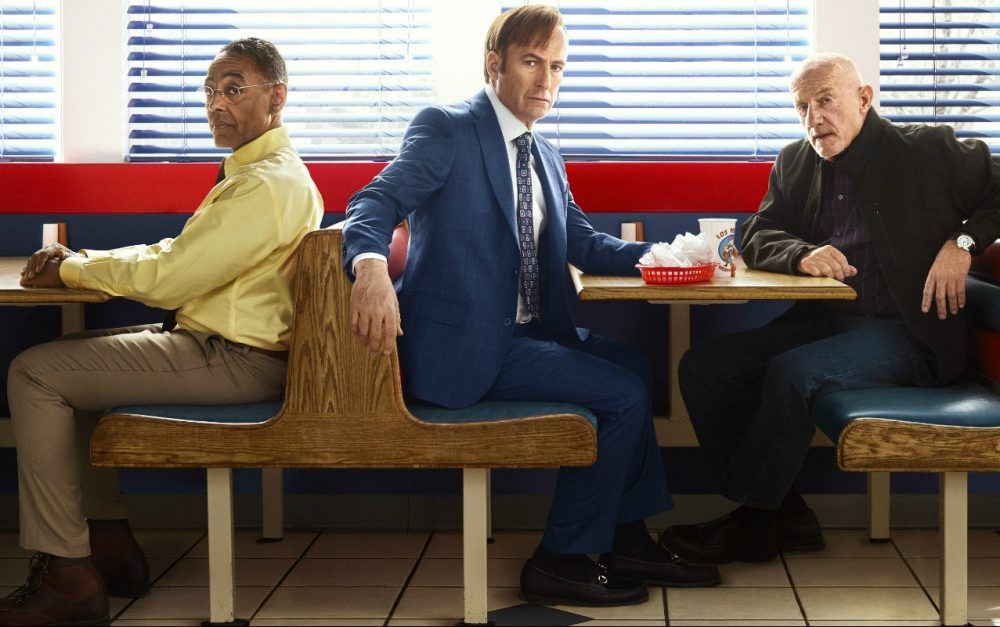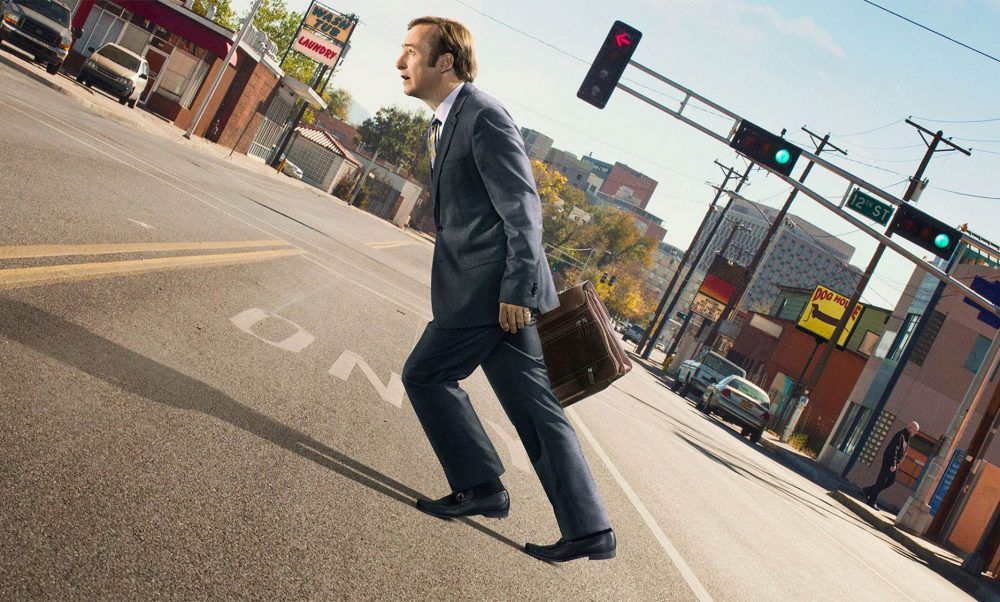Question: is Better Call Saul really, truly, honest to goodness a better show than Breaking Bad, or are people who claim that just trying to be edgy? Well, it's hard to say. Personally, we don't like to take sides, especially on this matter since both shows are so great, but let's expound on this issue.
Could it be that the spin-off of an iconic saga of a TV series is actually better than the legendary show that inspired it? We're going to leave that to you guys to decide. But either way, you could totally argue that Better Call Saul is better than Breaking Bad — or, at least, that there are some things that the spin-off prequel did better than the original show. Nevertheless, here are 10 things to support that statement.
10. Mike Ehrmantraut
A big part of what sets Better Call Saul apart from Breaking Bad is that it's all backstory. One of the many advantages of this is that it allows the writers to flesh out the original supporting characters in a way they couldn't be done in Breaking Bad. Mike Ehrmantraut is the perfect example of that.
In Better Call Saul, we're not just watching Mike, the hard-nosed retired cop, do damage control for egomaniacal criminals, or break his back trying to save money for his granddaughter. Instead, we're seeing Mike's history. We're learning about his son, about where he was mentally and financially when he first turned to crime. We get more Mike, and we're counting that as a definite check in the pros column.
RELATED: Every Breaking Bad Cameo In Better Call Saul
9. Heavy On The Anticipation, Easy On The Stress
Look, we're hardcore, alright? We always give it 110%. We did our first marathon when we were just 5 years old — not the running kind of marathon... the TV show kind, obviously. We're not very athletic. The point is, we can binge-watch TV shows like nobody's business. But Breaking Bad? Man, that one really took it out of us.
Better Call Saul is a drama too, but its seriousness is undercut with lots of humor. This is a show that's got us on the edge of our seat, desperate to find out what happens next. But when it's over, we can get up and resume our normal lives without feeling like we need to go cry alone in the dark for a few hours. That's another solid plus.
RELATED: Greta Gerwig's Little Women Casts Better Call Saul's Bob Odenkirk
8. Hector Salamanca
Also known as Tio, Hector Salamanca is a drug runner who was left bound to a wheelchair after a stroke, that's what we learn from Breaking Bad. We also learn that he and Gus Fring don't get along, and that both of them have been butting heads for years. Better Call Saul does Hector so much better, and we've got some evidence to back that claim up.
When we first run into the Better Call Saul version of Hector, he's not in a wheelchair. This is pre-stroke Hector we're seeing (which shows us a whole, previously unknown side of him), and it proves that as bad as we all suspected he was, he's actually worse. On top of that, we see what leads to his stroke, what causes his stroke, and his decline into the Hector we know in Breaking Bad.
7. Lack Of An Overarching Theme
In Breaking Bad, the theme was obvious almost from the beginning. Sure, each season had a handful of self-contained plotlines going on, but the whole show was about one thing and one thing only: Walter White making blue crystal, selling it for top dollar, and becoming the very best in a game where there are no winners.
But Jimmy's overall scheme isn't as clear-cut. We all know where this whole thing is headed, right? This leads to the events of Breaking Bad, which leads to Jimmy working at a Cinnabon with a fake identity. But even though we know where we're going, we still don't know how we're getting there, and the lack of any real, overarching theme (aside from a few connected storylines between seasons) has been a blessing for Better Call Saul.
RELATED: Bryan Cranston & Aaron Paul Would Appear On Better Call Saul If Asked
6. Gus Fring
Gus Fring is Walter White's match. In Breaking Bad, we see those two go head-to-head numerous times, and they run themselves ragged trying to stay two steps ahead of each other. In the original series, Gus and Walter are constantly trying to best each other
Better Call Saul excludes (at least, it has thus far) Walter White. This has allowed Gus to come into his own, in a backstory kind of way. We see Gus stand in the ring by himself, with no rivals of similar mastermind-style intelligence. The spin-off follows Gus's rise to power; it examines his methodical, long-term goal-oriented approach to the drug game. Dare we say it, Better Call Saul Gus is better than Breaking Bad Gus.
5. Lighter Tone
Breaking Bad told the tale of a science teacher—a smart, regular guy, really—whose cancer diagnosis and determination to provide for his family after his demise slowly turns him into a monster. In terms of the show, we loved that. Seeing Walter White go from stand-up fella to "The Danger" was a wild ride, but it wasn't exactly relatable.
In Better Call Saul, on the other hand, we see Jimmy not only become Saul (a character whose development is far less sinister than Walter White's, by the way), but we can relate to him more as a protagonist. He's got these internal struggles, his desire to do right versus his desire to just wing his way through life and have a little fun, is so much easier to relate to than cooking drugs in an old, beat up RV.
RELATED: Better Call Saul: Bob Odenkirk Responds To Fan Theory About Chuck's Letter
4. The Cousins
Better Call Saul is like one of those episodes of Oprah where each audience member gets something. In this case, however, each character wins their own personal history. It's like, "You get a backstory! And you get a backstory!" Which is great, too, because if there's one thing the writers of this show are good at, it's creating interesting characters. Two such characters? The cousins.
Leonel and Marco Salamanca are the cowboy-booted, quietly intimidating twin nephews of Hector Salamanca, Mr. Incessant Bell-Ringer himself. Though these two hitmen stay pretty silent in Breaking Bad, they actually have lines in Better Call Saul, and the show also manages to explain their unbreakable bond.
3. The Female Lead
In terms of female leads, Skyler White is no Kim Wexler. Unlike Skyler, who adamantly opposed Walter until she just couldn't anymore, Kim was never against Jimmy's criminal behavior. Not only does she embrace it, but she's also seemingly attracted to it. She even participates in cons with him sometimes.
At first glance, Kim is a competent lawyer and a fearsome competitor in the courtroom, but under the surface, she enjoys a good double-crossing scheme almost as much as Jimmy. Kim is just as unpredictable as the title guy. But in her own way, and the way these two play off each other totally works for the show in a way that Skyler and Walter's dynamic never could.
2. The Criminal Aspect
The main characters in both Breaking Bad and Better Call Saul are criminals, but their styles are poles apart. Walter White is a mastermind. He's not just a bad guy, he's a bad guy. Saul, however, isn't bad—at least, not completely—and while it's fair to argue that he's a mastermind, he's more of a con man than a supervillain.
Walter White, similar to Gus Fring, orchestrated every aspect of every crime he committed. Jimmy, on the other hand, simply swoops into events that are already unfolding, and tries to swing it so he comes out on top. Whenever he tries to coordinate a crime, he ends up in a bind, but watching him figure out how to get himself back out of it is half the fun.
RELATED: Breaking Bad Movie In Development; Starts Filming This Fall
1. The Protagonist
When it comes to comparing Walter White to Jimmy McGill in terms of likability, we think the winner is clear. But we're not talking about likability alone, here. We're talking about the role of the protagonist. In Breaking Bad, Walter's descent into evil-dom is stark, steady, and plain to see. He goes from white to black, showing very few, if any shades of gray.
Jimmy as a protagonist does have shades of gray. Heck, he is shades of gray. The minute you think he has a heart of gold is exactly the minute he does something to prove you wrong. The second you think he's a complete scumbag is the second he decides to listen to his moral compass again. Jimmy is far less predictable than Walter, which we think makes him the better protagonist.

